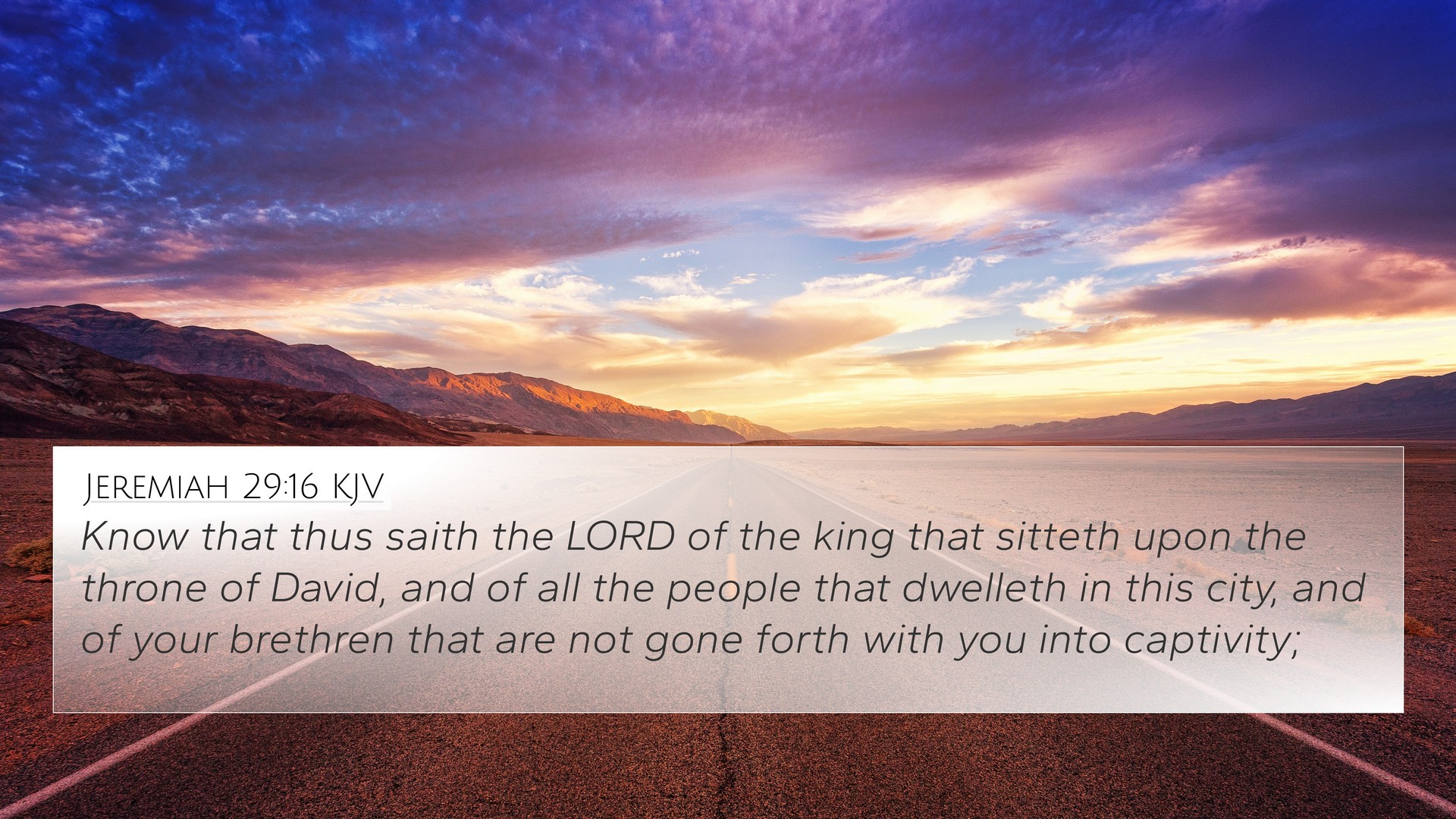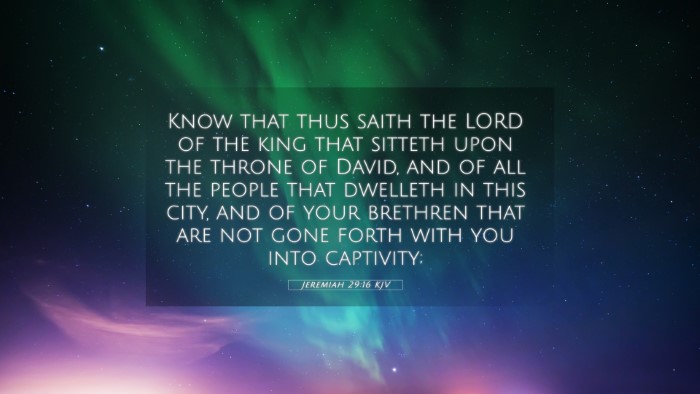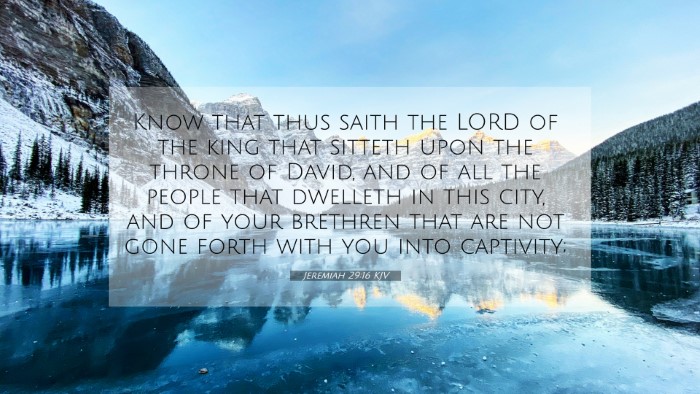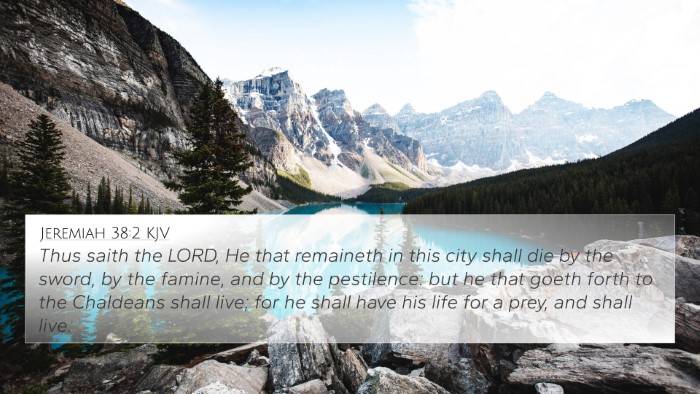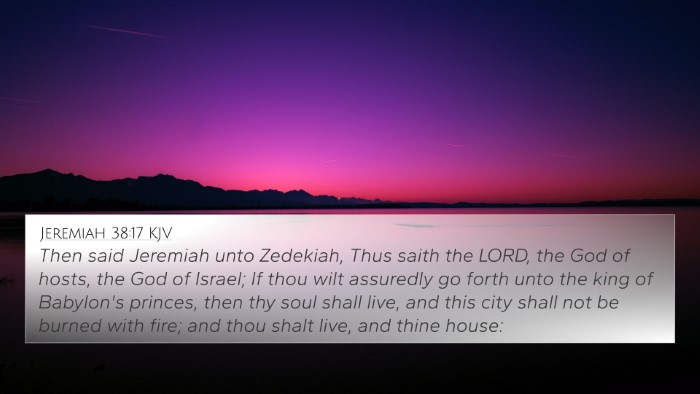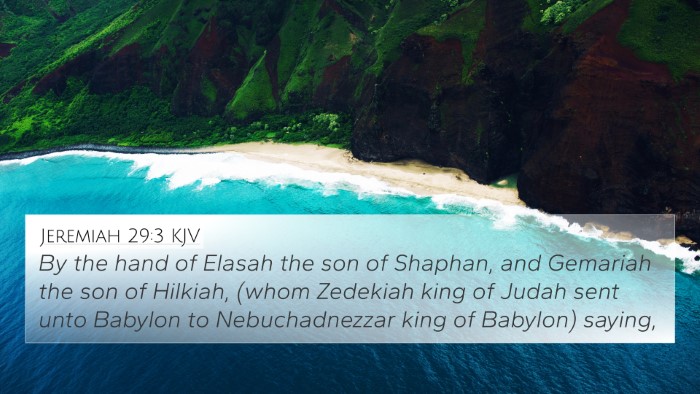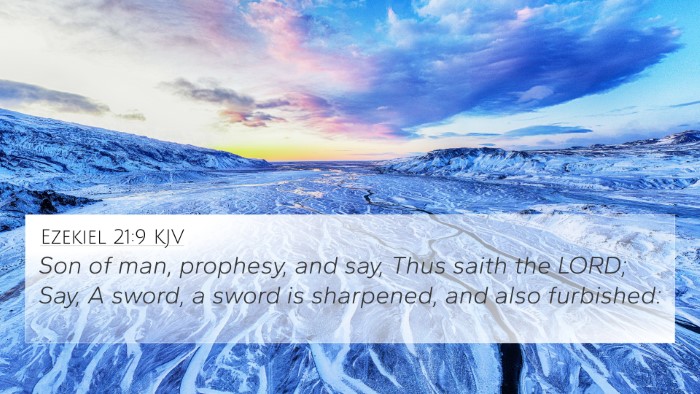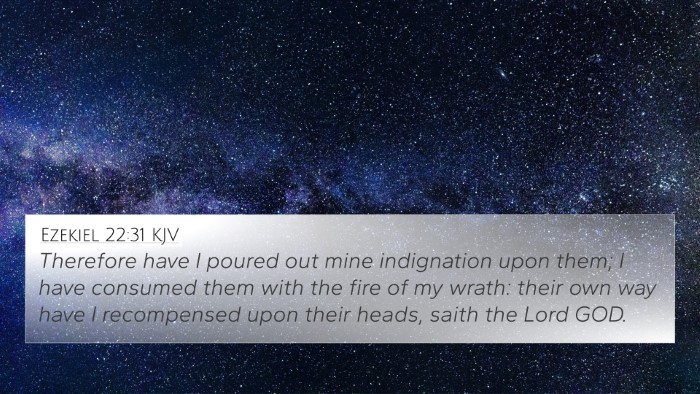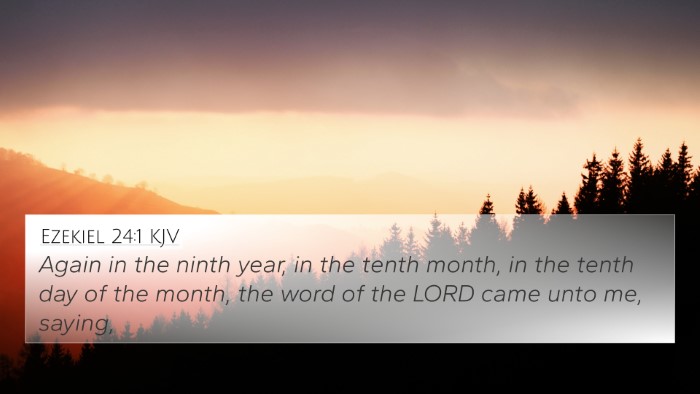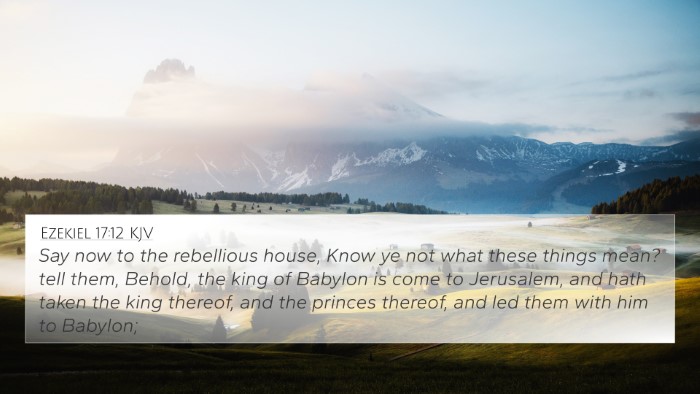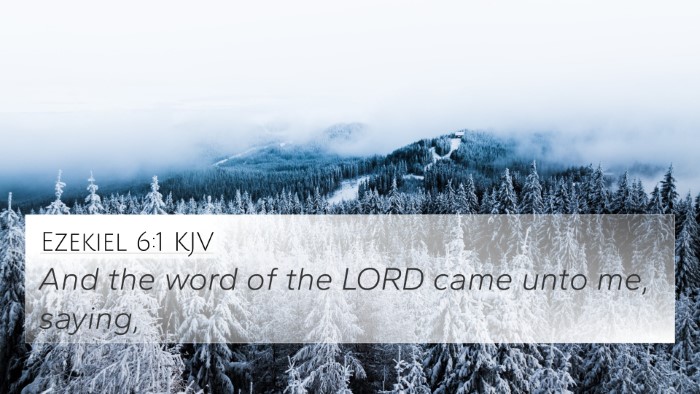Understanding Jeremiah 29:16
Jeremiah 29:16 states: "For thus says the Lord concerning the kings who sit on the throne of David, concerning all the people who dwell in this city, your brothers who did not go out with you into exile." This verse addresses the fate of the rulers and significant figures in Jerusalem, and it serves as a connection point for various themes throughout Scripture.
Context and Significance
This verse is part of a larger prophetic letter that Jeremiah sends to the exiles in Babylon. The context indicates that God acknowledges the existence and fate of those who remained in Jerusalem rather than accompanying the exiles. The assurance from God clarifies that He is aware of all His people's circumstances, whether they are in exile or at home.
Insights from Commentaries
- Matthew Henry: Henry highlights God's omniscience and how He works out His purposes, even amidst difficult circumstances. The kings mentioned are reminded that God has not forgotten His people.
- Albert Barnes: Barnes explains that this message addresses the leaders of Jerusalem, emphasizing that despite their current standing, their future is in God's hands. Their lack of exile does not equate to favor from God.
- Adam Clarke: Clarke notes the importance of this verse in showing the continuity of God’s plan. He emphasizes that God's sovereignty extends over both the exiles and those who remained, reinforcing the theme of divine control regardless of human actions.
Thematic Connections
Jeremiah 29:16 resonates with several key themes, such as:
- God's Oversight: This reflects how God oversees His people, whether in times of trouble or prosperity.
- Divine Judgment and Mercy: The distinction between the exiles and those left behind implies a lesson on God's judgment and mercy.
- Hope in Despair: This letter overall offers hope, which is critical when discussing God's relationship with His people amidst adversity.
- Covenant Faithfulness: God’s promises extend beyond geographical boundaries, showing His commitment to the covenant made with Israel.
Cross-References
This verse is intricately connected to several other scriptures, forming a rich tapestry of thematic and prophetic links:
- Jeremiah 24:5-6: The analogy of two baskets of figs representing the good and bad figs is a strong parallel regarding judgment and preservation.
- 2 Kings 24:14: This passage details the exile and relates closely to the subjects of Jeremiah’s prophecy, illustrating the context of those left in Jerusalem.
- Isaiah 39:7: This verse speaks of the fate of the descendants and treasures of Jerusalem, deepening the understanding of God's plan for His people.
- Lamentations 1:1: The devastation faced by Jerusalem and the lament expresses the emotional impact of exile.
- Romans 11:1: Paul asks if God has rejected His people, showing the continuity of God’s mercy and plan towards Israel.
- Ezekiel 33:24: This verse addresses the notion of those who remain in the land, emphasizing God’s omnipresence and interest in all Israel.
- Matthew 1:12: The genealogy of Jesus highlights the lineage from those who stayed in the land and connects the old covenant with the new.
- Luke 4:18-19: Jesus reads from Isaiah, proclaiming liberty, thus connecting the themes of restoration faced in Jeremiah's letter.
- Hebrews 13:5: This verse emphasizes God's promise to never forsake His people, echoing the sentiments of Jeremiah 29:16.
- John 10:14-16: The Good Shepherd's concern for both sheep in the fold and those lost parallels the concern God shows for both exiles and non-exiles.
Conclusion
Jeremiah 29:16 illustrates God's deep commitment to His people during difficult times, emphasizing His sovereignty and the eventual restoration that aligns with His broader plan. By examining cross-references and thematic connections, we develop a deeper understanding of how this verse fits within the narrative of Scripture. As believers, recognizing these interconnections enriches our study and helps us appreciate the Bible's cohesive message.
